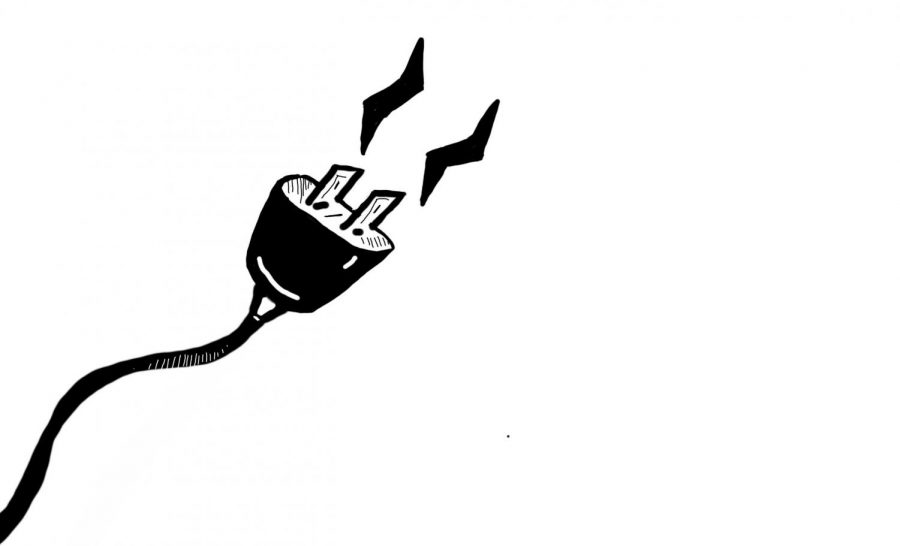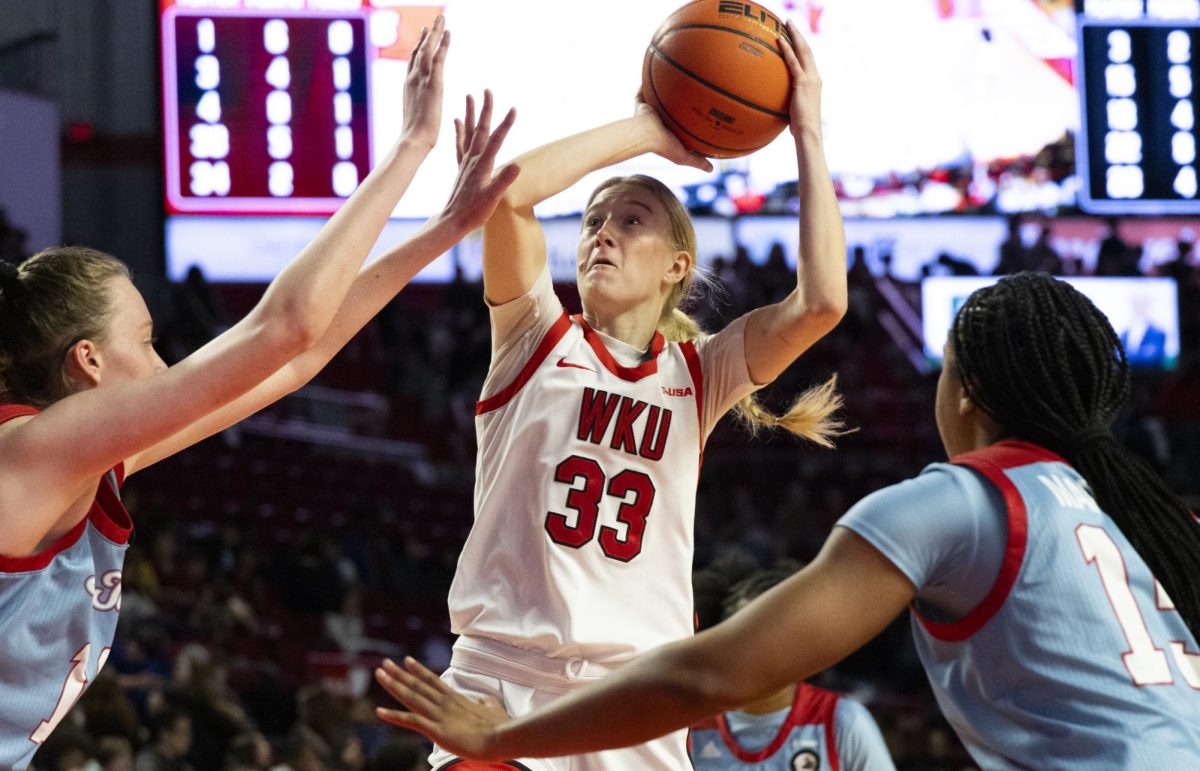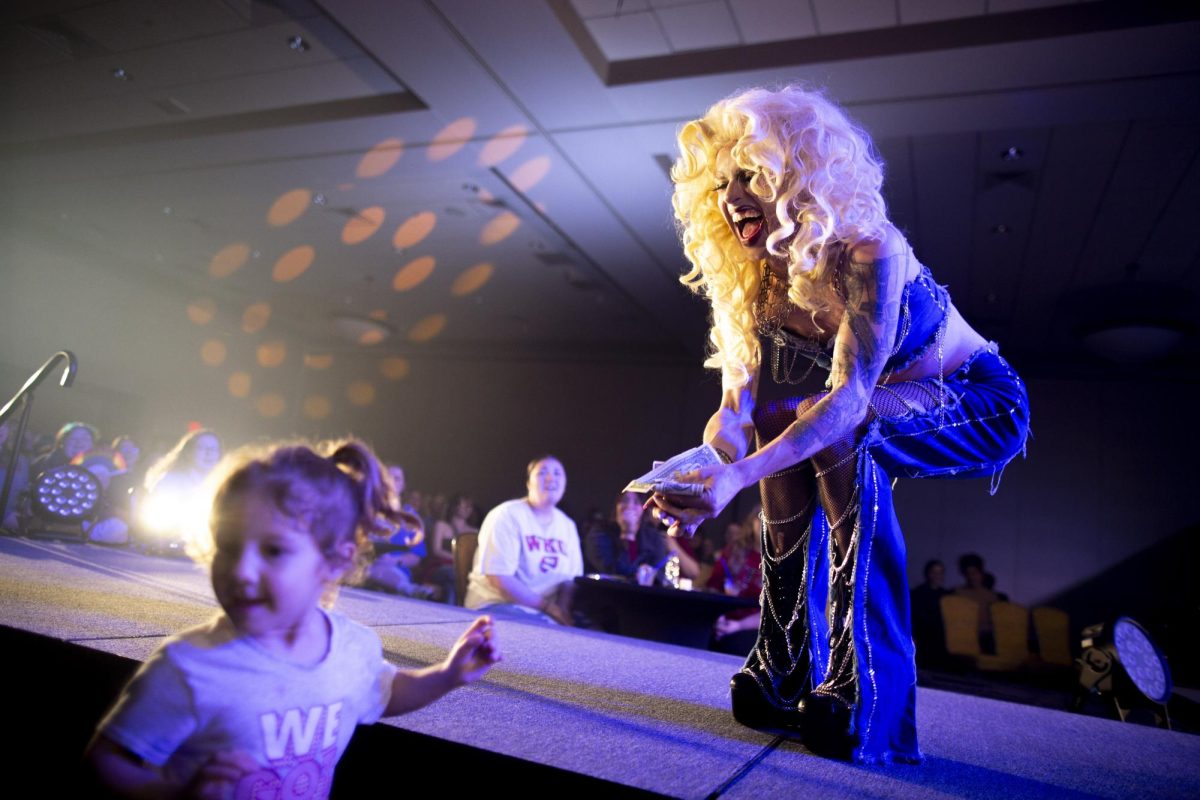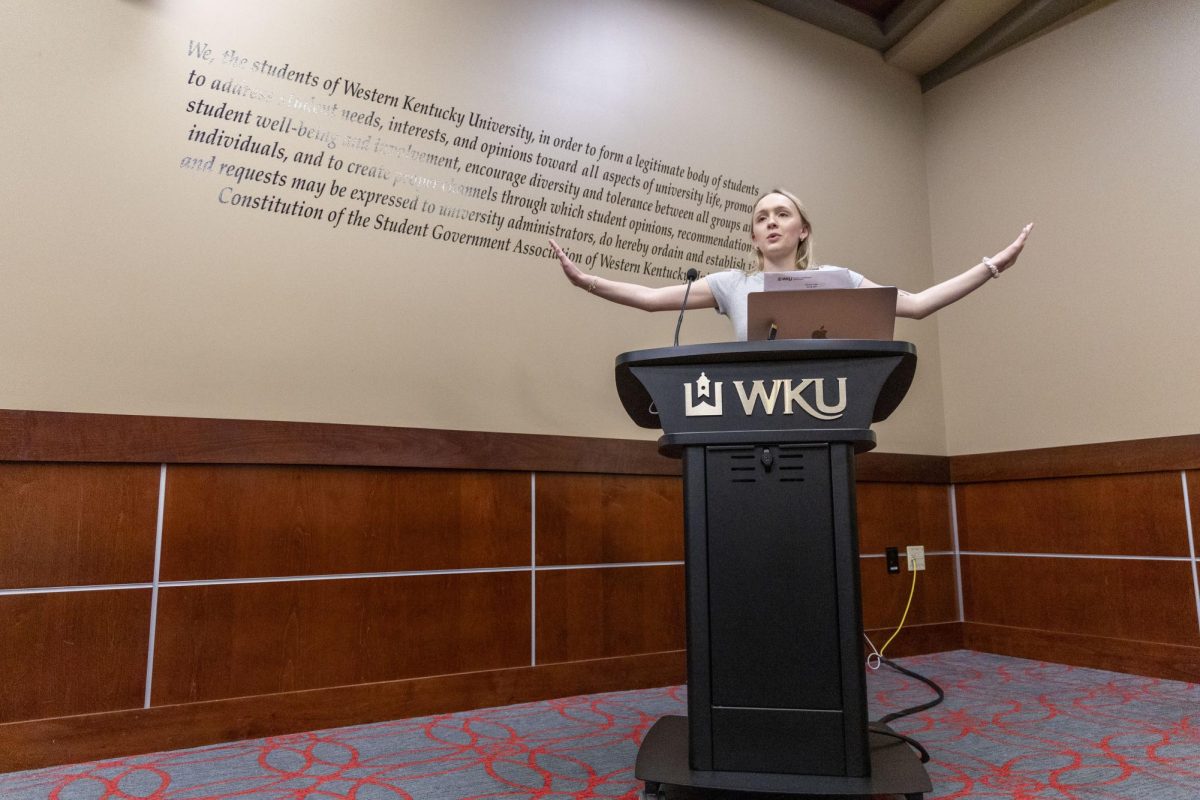Plugged in: Professors across WKU adapt to online class shift
May 8, 2020
This story was published in the May 8 final print issue. Read the full issue here.
WKU moved its spring semester classes to an online-only format on March 17 to combat the coronavirus outbreak. In order for this switch to happen, professors had to prepare.
English Professor Alex Poole started to prepare “the day they announced the changes.” Some professors began preparing earlier than that.
“When we heard on March 11, I started preparing,” political science Professor Timothy Rich said. “I emailed students that day and had updated syllabi on Blackboard on March 13. I also started learning Zoom that Friday as well.”
Rich also commented that he didn’t have much faith in other faculty for having a “great sense” of online classes until a few days before the university reconvened. Equine science Professor Jennifer Gill started preparing during the university’s extended Spring Break.
“I began [preparing] during the extra week of Spring Break,” Gill said. “I already teach an online class and completed a certification program offered by WKU through CITL, so I was pretty prepared for the switch.”
No matter how prepared for the switch to online classes WKU’s professors were, the change from in-person class to online class has caused a deficit in education.
Gill, who teaches laboratory classes like Introduction to Horse Science and Equine Health, has seen a loss in her planned activities for the semester.
“I had planned hands-on activities, and these were canceled,” Gill said.
Gill’s classes have a large laboratory component at the WKU Agriculture Equestrian Unit. She is also responsible for an independent study in horse breeding and foaling, which was centered around the foal that was born on March 19.
“Students were going to participate in foal watch,” Gill said. “It was unfortunate that most of the students were not around for that special event.”
Gill also teaches an agriculture course with a co-op equine experience that takes place at the WKU farm.
“Students gain work experience at the university farm and through an optional service learning opportunity at New Beginnings Therapeutic Riding Center,” Gill said. “This was converted to online after COVID-19, but the practical experience cannot be replicated on resumes.”
Rich also noted several losses in his classes since the switch to online classes. One thing that he noted was that he feels more concerned about students now than ever.
“It’s much harder to tell if students are grasping the information or even paying attention,” Rich said. “I’m concerned that some students erroneously think that logging into Zoom and just walking away somehow counts for credit.”
In order to combat this, Rich has been conducting live classes over Zoom at the same time his classes normally met, and he records the class sessions so that he can post them to Blackboard along with the Powerpoints. However, he realizes that online classes change the circumstances for a lot of students.
“Many students don’t have stable internet access or don’t have microphones or a quiet room, so live participation is certainly complicated,” Rich said. “More complex assignments might need to be pared down. Group assignments become much more difficult, especially if there’s no variance in internet access.”
Rich also notes that there is a lag in communication with his students.
“Students with questions can’t just pop by the office,” Rich said. “While I’m quick to respond to emails, a lot of students just won’t take that step, which is unfortunate.”
Poole noted that the biggest loss he has experienced with online classes is discussion with his students.
“They are possible but not as rewarding and spontaneous,” Poole said. “Also, communication is slower. Mistakes and miscommunication which would normally be taken care of during class can take a lot of time to resolve.”
Because professors are struggling most with the absence of face-to-face sessions, they have been working feverishly to compensate for this loss.
Poole has been compensating for face-to-face sessions with Zoom meetings and discussion board posts on Blackboard. Rich has taken a similar form of digitalization to his classes.
“I’m still having office hours via Zoom and usually have private meetings with a least a few students each day,” Rich said. “Besides the video updates, I try to convey the same information in emails to students as well. I opted to go with synchronous classes and video to provide some sense of normalcy.”
Rich understands that some students do not have the same schedule at home that they did at school, so he wants to ensure that all students are fairly getting the information. The normalcy and consistency that Rich provides has received positive feedback from his students.
Gill’s hands-on classes are not so easy to compensate for, but she has found ways. She attended a Zoom seminar with the Equine Science Society and the National Association of Equine-Affiliated Academics that provided her with resources for hands-on learning.
“I have been having students complete online training,” Gill said of a website that she learned about at the seminar. “Activities and online interactive seminars over a variety of topics are hosted by equine professionals from all over the nation.”
Not only does she require online training, but Gill also directs her students toward YouTube videos that contain how-to tutorials and demonstrations. She has also had her students submit presentations of their learning.
“Other equine extension professions are posting YouTube channel videos for 4H groups that students can access,” Gill said. “Students in my breeding and foaling practicum class have been submitting presentations and completing [online] activities and submitting screenshots of their completion for credit.”
Professors have stepped up and made changes to their classes in order to adjust to this time in WKU’s education. Regardless of the changes made, this switch to finishing the semester’s classes online can be worrisome.
“We’ll finish,” Rich said. “But I do have some pretty big concerns.”
Rich was particularly worried about the new P/D/F option that the university is offering for final grades. He sees it as appropriate in a lot of situations, but he is also wary of the fact that some students may take it for granted.
“I’m concerned that many students feel that they can now skip assignments and coast into a C,” Rich said. “However, that requires students to have been doing fairly well prior to going online. For students that were doing low C work or worse before, I think the PDF gives false hope [because] some students still seem to think it’s a pass-fail option too, so they are gunning for a 60. That’s dangerous.”
On the other hand, he is worried about students’ lives at home. Rich wants to be able to maintain standards of the classroom but also make room for these changes in students’ home lives.
“We have students who are sick, who are now taking care of family members and have other commitments that are being shifted around as well,” Rich said. “Flexibility while maintaining standards can be accomplished.”
Rich said that he was also concerned about the consistency of other faculty members’ communication with students. He expressed confidence that most of the faculty is doing well under the conditions, but he also noted that the feedback from his students was not what he hoped it would be.
“I had several students mention that they were going into the first week of online classes not knowing what the format would be or if assignments had changed,” Rich said. “Others still said that they weren’t sure what was going on in certain classes as there was little consistent interaction or updates. That’s a recipe for problems.”
Overall, Rich is also concerned about the little things that are out of his control. For example, WKU’s offices are not open, so he expressed concerns for graduating seniors and their need for filled-out forms.
Poole’s worries took on a broader scope, one that included the future.
“I worry that we will again be in this situation sometime next year,” Poole said. “I also worry about students’ mental health. Many of them are alone, lacking financial support and scared.”
On the contrary, Gill believes that there is no reason to fear ending the spring semester online. She said that she is confident it’s temporary and shouldn’t be too impactful on undergraduate students. Her main worries lie with her graduate students.
“I do have some anxiety over my graduate students completing this semester,” Gill said. “Research has been suspended, and we were to begin in August. I also don’t know if the company that was funding the study will still be able to provide the full grant.”
Regardless of the different approaches that these professors have to the changes, and in lieu of the drawbacks that have come out of the coronavirus outbreak, some professors at WKU expressed uplifting successes with the transition.
“I feel that my Blackboard sites are well laid out and easy for students to follow what they need to do to complete the course,” Gill said.
A lot of professors have opted for using Zoom to take the place of in-class discussions, which has yielded a lot of success.
“I found Zoom worked really well for a discussion when students were prepared,” Rich said. “The polling functions in Zoom are useful to how people are doing.”
Rich also expressed that he found discussion boards to be useful. All in all, Rich said that this entire experience has been beneficial.
“As someone who never taught an online class, now I certainly feel more equipped to do so in the future and have a better sense of what works and what doesn’t,” Rich said.
This transition has been difficult for everyone involved, but professors and students are working together to make this situation work.
“I think my students and I have been very flexible,” Poole said. “We have quickly transitioned and shown patience with each other and ourselves.”
Features reporter Julianna Lowe can be reached at 270-745-6291 and julianna.lowe253@topper.wku.edu. Follow Julianna on social media at @juliannalowe.













